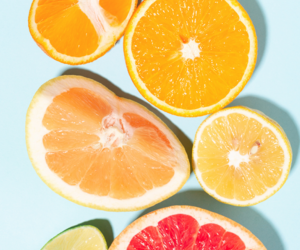The FDOC defends citrus industry against inaccurate, misleading media accounts.
The following correspondence was issued to QZ.com senior business editor Zach Seward by the FDOC, in response to recent industry coverage by Quartz.
Dear Mr. Seward,
I hope this note finds you well. On behalf of the Florida Department of Citrus, I wanted to reach out regarding Quartz coverage of our industry.
In both August and September, we saw pieces detailing industry trends, including the latest by Max Nisen entitled “Not even a citrus-based superhero can save orange juice” and Daniel Medina’s “America’s relationship with orange juice continues to sour.” While I certainly appreciate a public interest in our industry and the news value of recent developments, we have concerns around recurring themes within these pieces that continue to create an inaccurate picture of the nutrition value of orange juice and its status with American consumers.
First, equating nutrient-dense 100% Florida Orange Juice with a candy bar or sugary soft drinks (which contain added sugars but few if any beneficial nutrients) is irresponsible and creates potential confusion among consumers trying to make more healthful choices. Unlike what many consumers think of as “junk food,” 100% Florida Orange Juice has no added sugar; it contains only natural sugars present in the juice when squeezed from the orange. Furthermore, an 8-ounce serving of 100% Florida Orange Juice boasts an impressive ratio of nutrients per calorie, is an excellent source of vitamin C, and is packed with a variety of other nutrients including potassium and folate—three important nutrients we know to be under-consumed in the United States.[1] In addition, one 8-ounce glass of 100% Florida Orange Juice is also an easy way for health-conscious consumers to meet daily fruit-intake recommendations. (The same, of course, can not be said of the “junk food” with which Quartz has compared orange juice.)
We also take issue with the Quartz assertion that Americans “just don’t like” orange juice. The data are clear on this point: orange juice remains, by far, America’s favorite fruit juice and maintains an impressive household penetration (around 70 percent). Even as the American breakfast table and much about our dietary habits have changed, orange juice has remained popular. Despite historic shortages on the supply side (which have had an unmistakable impact on consumption patterns), 100% Florida Orange Juice remains an iconic beverage, and Americans continue to enjoy every drop of orange juice that Florida’s citrus growers can produce.
Like other agricultural products, of course, the Florida citrus industry faces significant challenges, from fighting pests and diseases to surviving hurricanes and freezes. But, for many generations, our growers have prevailed each and every time, thanks to a remarkable combination of innovation and hard work. Research to address the pressing threat of HLB (“greening”) is ongoing, even as our producers continue to identify and test methods to preserve the public’s access to the juice Americans love.
At the programmatic level, our recent launch of Captain Citrus (noted in Mr. Nisen’s piece) is one example of our unwavering commitment to engage loyal and new consumers and to raise public awareness of the nutritional value of Florida citrus. We are committed to accuracy and transparency and to correcting a record clouded by the work noted above. Captain Citrus was never intended to be a “silver bullet” or miracle cure for the challenges our industry faces. Instead it is one aspect of an ongoing effort to engage and inform consumers. The fact that the Captain Citrus launch has already been featured in over 600 media accounts around the globe, with a reach of over 200 million consumers, confirms that, even in its first week and before the first comic book has rolled off the presses, the new program has captured imaginations and created unprecedented opportunities for engagement.
Your outlet’s continued interest in our industry is much appreciated. Florida citrus will remain relevant to your readers, and our industry will continue to provide your journalists with compelling story lines. I would be happy to schedule time with you or members of your staff to continue this dialogue as a resource for future pieces. I would also be happy to introduce you to nutrition expert Gail Rampersaud, MS, RDN, LDN, of the University of Florida, who works closely with our FDOC communication team and knows as much about orange juice and nutrition as anybody on the planet. We have nothing to hide. All we hope for is that those who cover the industry invest the time and effort necessary to “get the story right.” I am certain you share that hope with us.
In the meantime, I encourage you to visit FloridaCitrus.org for additional information on our industry.
Thank you again for your time and consideration.
Sincerely,
David Steele
Director of Public Relations
Florida Department of Citrus
References
1. U.S. Department of Agriculture and U.S. Department of Health and Human Services. Dietary Guidelines for Americans, 2010. 7th Edition, Washington, DC: U.S. Government Printing Office, December 2010
